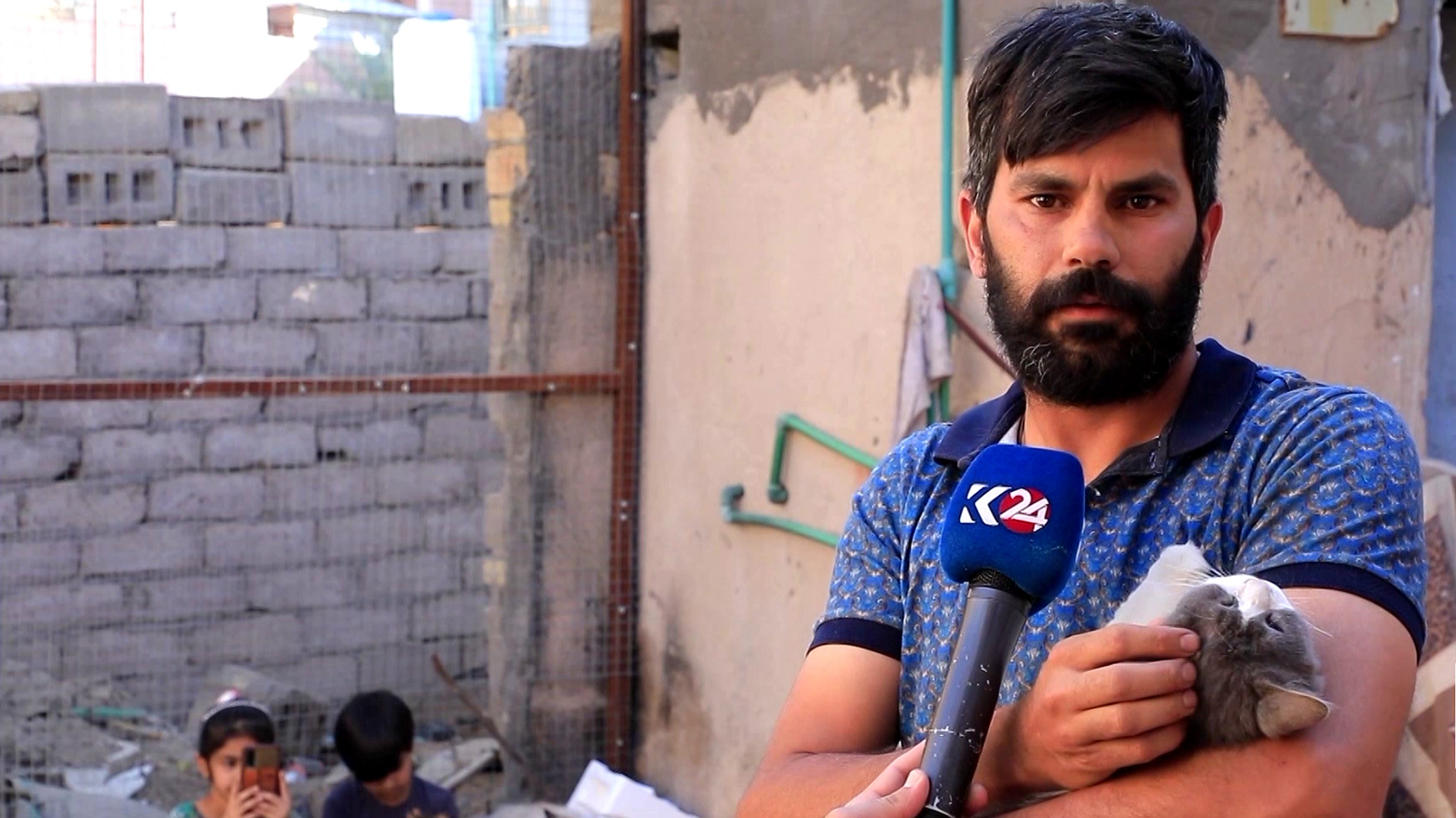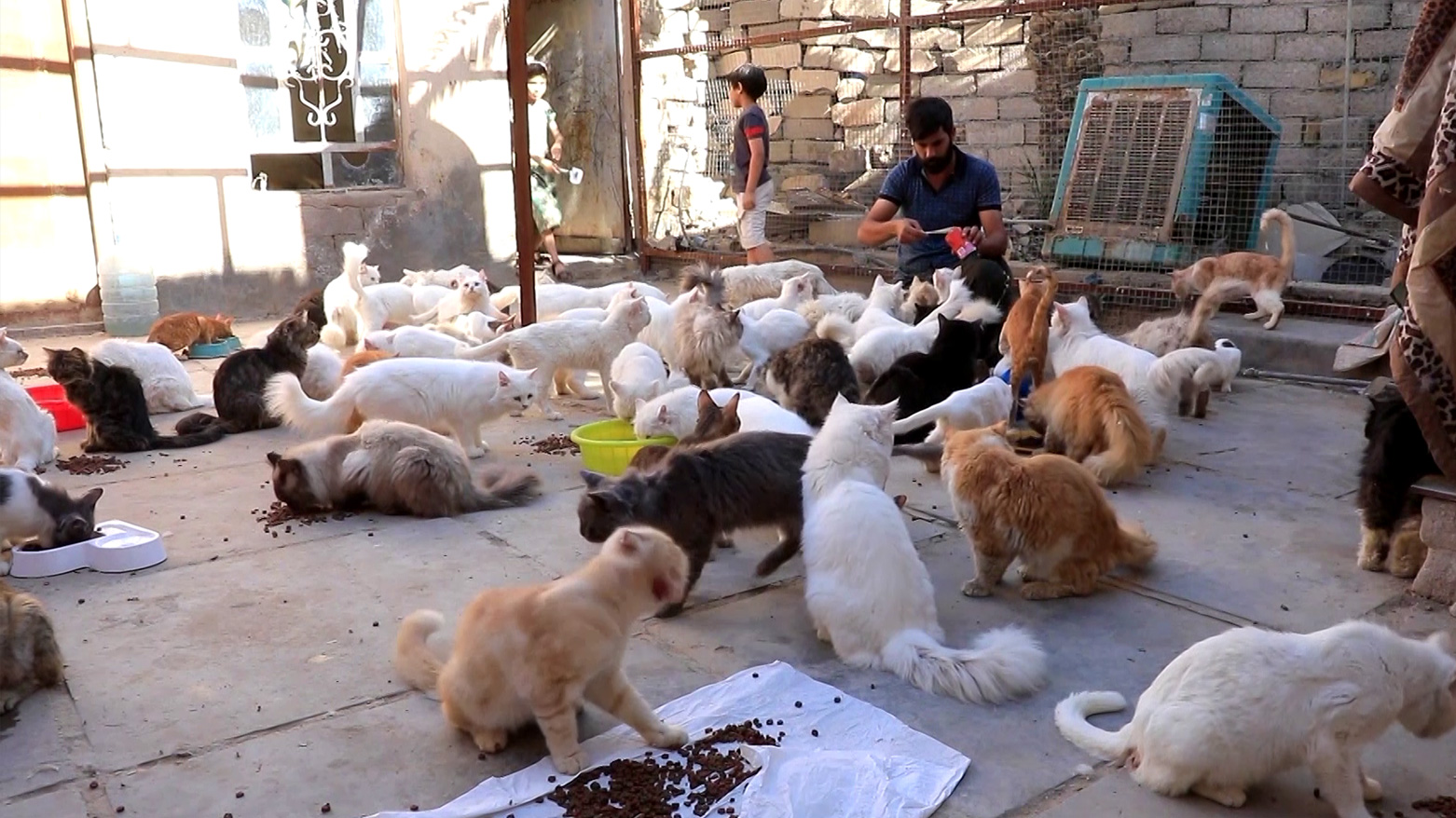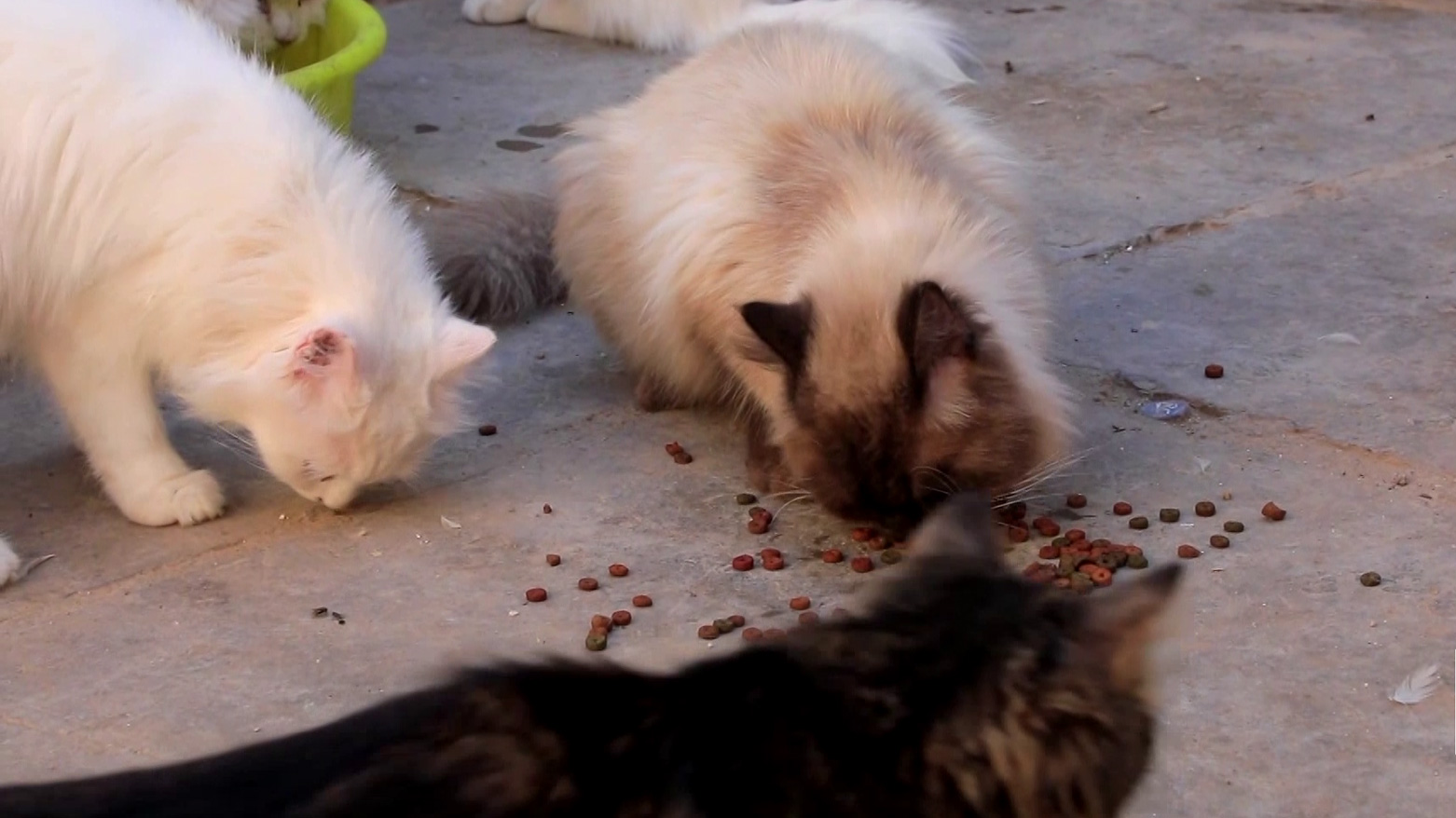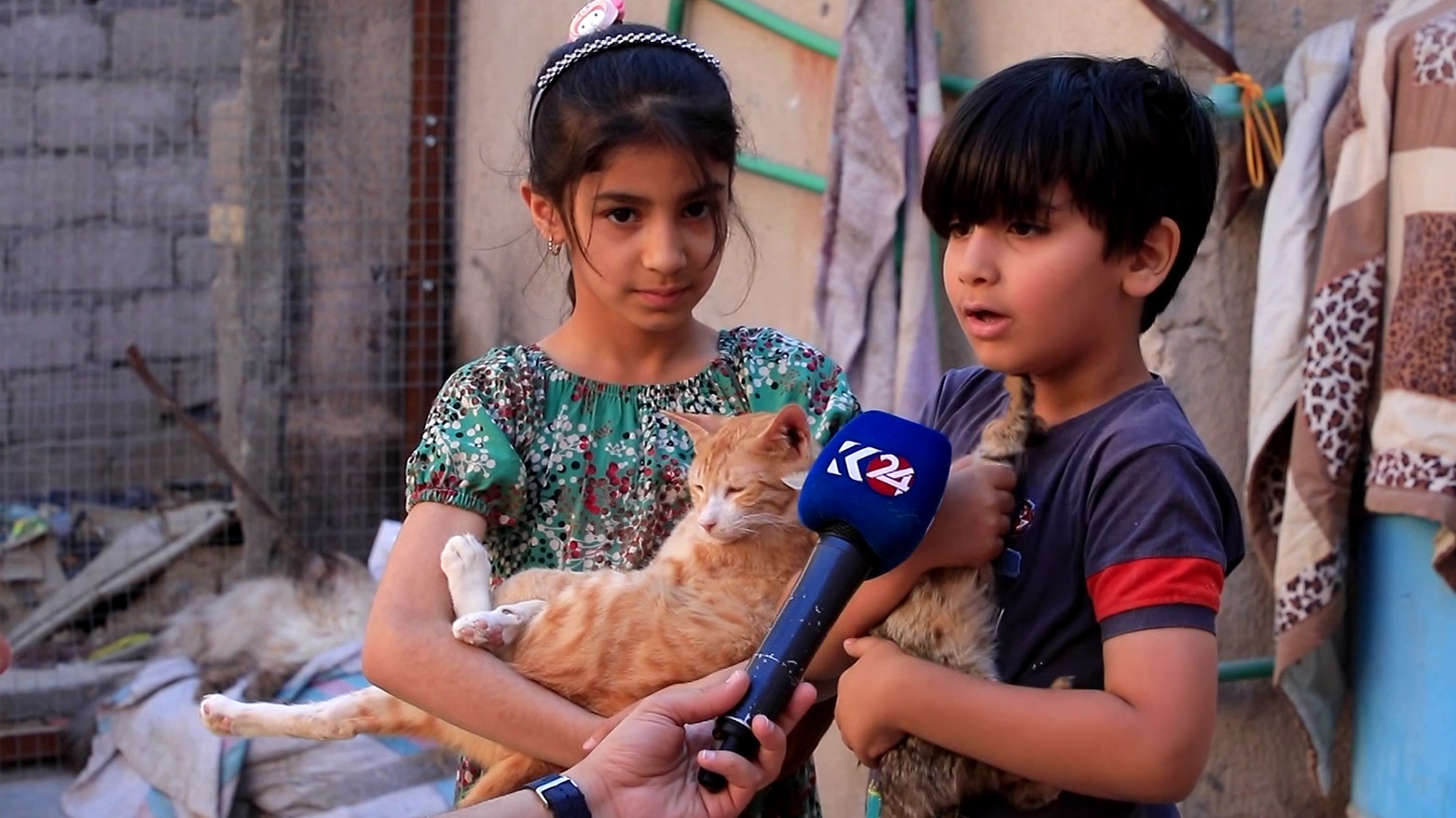Agheel’s Haven: Kindness in Every Meow
“Right now, I have 200 cats at the shelter. I ask for support from authorities, and I plead for veterinarians to offer checkups and care. This is a humanitarian duty, not a business,” Agheel said.

By Kamaran Aziz
ERBIL (Kurdistan24) — In the heart of Iraq’s southern province of Nasiriyah, inside a modest 120-square-meter rented house, a remarkable story of compassion is unfolding. More than 200 cats—many injured, abandoned, or sick—have found refuge thanks to the unwavering efforts of one man, Agheel Khafaji, whose mission to rescue and care for stray felines has grown into a symbol of quiet heroism.
Agheel’s journey began not with grand ambition but with a single act of kindness. “The first cat that was brought to me was very sick,” he told Kurdistan24 correspondent Haidar Hanoon. “I started treatment, put her in a cage, and began caring for her. As days passed, more cats arrived.” Moved by the growing need and with no institutional backing, Agheel opened a social media account under the name "Save Animals Unit," which soon became a magnet for those seeking help for stray or injured cats.

As the calls came in, Agheel responded—rescuing cats that had been hit by cars, suffering from broken bones, malnourishment, or disease. Many had been cruelly abandoned, including house cats discarded by owners unable or unwilling to care for them during illness or mating season. "This is something which bothers me a lot," he said with visible frustration. “People treat pets like playthings and toss them out when they become inconvenient. That’s not right.”
At first, Agheel housed the cats in a small store, providing food and medicine from his own limited resources. But as the number of rescues grew, the space became too cramped. Driven by compassion and necessity, and without external financial support, he rented a larger home to transform into a makeshift animal shelter. Today, that space is filled with the sound of meows and the silent gratitude of creatures that might otherwise have perished.

"Abandoning cats—and in some cases, hurting them—has become almost a phenomenon in Nasiriyah," he lamented. “Right now, I have 200 cats at the shelter. I ask for support from authorities, and I plead for veterinarians to offer checkups and care. This is a humanitarian duty, not a business.”
His young son, cradling one of the rescued cats, echoed his father’s sentiment: "Whoever buys a cat should know this isn’t a game. Being a pet owner means responsibility. These pets have souls—it’s only proper to look after them."

In a country where stories of animal welfare rarely make headlines, Agheel’s initiative stands out not just for its scale but for its sincerity. Without sponsorship, infrastructure, or publicity, one man and his family have built a haven of care for Iraq’s voiceless animals. His work is a testament to the power of empathy—and a reminder that even in the most overlooked corners, compassion can flourish.
Kurdistan24 correspondent Haidar Hanoon contributed to this report.